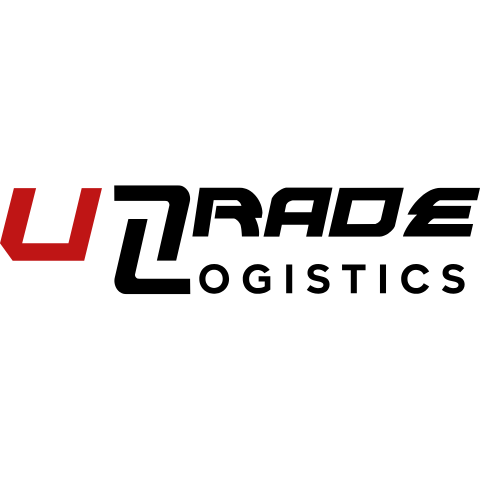Pharma Transport: Ensuring Safe and Reliable Medical Supply Chain

Introduction to Pharma Transport
Pharma transport is one of the most sensitive and regulated areas of modern logistics. Unlike general freight, it requires precision, care, and compliance with strict global standards. Medicines, vaccines, and healthcare products must arrive at their destinations without delay and in perfect condition. A small disruption in temperature or handling can compromise their effectiveness, making reliable pharma transport critical not only for businesses but also for public health.
The Growing Demand in Healthcare Logistics
The pharmaceutical industry has expanded rapidly over the past two decades. With advancements in biotechnology, personalized medicine, and the growing demand for vaccines and specialty drugs, pharma transport has become more complex. The supply chain now stretches across continents, requiring cross-border coordination and strict adherence to regulations. This global demand has transformed the logistics industry, with specialized service providers playing a crucial role in maintaining efficiency and compliance.
Why Pharma Transport Requires Specialization
Unlike other commodities, pharmaceuticals cannot be treated as ordinary cargo. They are sensitive to environmental factors such as temperature, humidity, and light. Many drugs need cold chain solutions, often between 2°C and 8°C, while others may require freezing conditions. Failure to maintain these conditions can lead to spoilage or inefficacy. This is why pharma transport demands specialized vehicles, warehouses, and trained personnel who understand the criticality of every shipment.
Temperature Control
Temperature management is the backbone of pharma transport. Logistics providers use insulated containers, refrigerated trucks, and monitoring devices to ensure constant conditions. Real-time data tracking has also become standard, allowing companies to intervene immediately if any deviation occurs.
Compliance with Regulations
Pharmaceuticals are subject to strict global regulations such as Good Distribution Practice (GDP). Pharma transport must meet these requirements at every stage of the supply chain. Documentation, validation, and audits form part of the process, ensuring transparency and accountability in each shipment.
The Role of Technology in Pharma Transport
Digital transformation has significantly enhanced the efficiency and reliability of pharma transport. With Internet of Things (IoT) sensors, companies can track not just the location of goods but also temperature, humidity, and handling. Artificial intelligence and predictive analytics allow better planning of routes, reducing risks of delays or temperature excursions. Blockchain technology has also entered the industry, creating tamper-proof records for shipments and building trust in the supply chain.
Cold Chain Logistics in Pharma Transport
Cold chain logistics forms the heart of pharmaceutical distribution. Whether it is vaccines that require ultra-low temperatures or biologics that must remain chilled, maintaining the cold chain is essential. Pharma transport providers invest heavily in specialized infrastructure such as cold storage warehouses, insulated containers, and refrigerated vehicles. The rise in biologic drugs and mRNA vaccines has made cold chain solutions more vital than ever before.
Packaging Innovations
Innovative packaging solutions now ensure stability throughout the journey. Vacuum-insulated panels, phase-change materials, and thermal blankets provide consistent protection. These innovations reduce the risk of temperature excursions during transit or handling at airports and ports.
Challenges in Pharma Transport
Despite technological advancements, pharma transport faces significant challenges. Global supply chains are often disrupted by geopolitical tensions, natural disasters, or pandemics. Delays at customs, lack of proper infrastructure in developing regions, and sudden climate changes can all threaten shipments. Another growing challenge is the risk of counterfeit medicines entering the supply chain. Secure and transparent logistics processes are therefore essential to protect both businesses and patients.
Sustainability in Pharma Transport
The pharmaceutical industry, like many others, faces growing pressure to reduce its carbon footprint. Pharma transport providers are increasingly adopting eco-friendly solutions such as electric vehicles, optimized routing, and energy-efficient cold storage systems. Balancing sustainability with compliance remains a challenge, but progress is being made as companies invest in greener technologies.
The Human Factor in Pharma Transport
While technology plays a critical role, human expertise remains at the core of pharma transport. Trained professionals who understand the importance of handling sensitive products ensure safe and efficient delivery. From drivers trained in handling emergencies to warehouse staff who follow strict protocols, the human factor adds a layer of reliability that technology alone cannot replace.
Future Trends in Pharma Transport
The future of pharma transport looks dynamic, driven by both challenges and innovations. The industry is moving toward fully digital supply chains, where every step is monitored in real time. Drone deliveries for last-mile pharma transport are being tested in remote regions, offering faster and more efficient solutions. The use of AI and big data will continue to refine logistics planning, reducing risks and improving efficiency.
Why Pharma Transport Matters Globally
Pharma transport is not only about business efficiency but also about saving lives. Vaccines, insulin, cancer treatments, and emergency medicines all rely on timely and secure delivery. During the COVID-19 pandemic, the world witnessed the importance of a robust pharmaceutical logistics system. Millions of doses were transported globally under stringent conditions, proving that pharma transport is the backbone of global healthcare.
Conclusion
Pharma transport is a vital component of the healthcare supply chain. It combines technology, human expertise, and strict compliance to ensure that life-saving medicines reach patients safely and on time. As the pharmaceutical industry continues to expand, the role of specialized logistics will become even more critical. With innovations in cold chain logistics, digital tracking, and sustainable practices, pharma transport is evolving to meet the demands of a fast-changing world. Reliable and secure transport of pharmaceuticals does not just support businesses—it safeguards global health.
- Art
- Causes
- Crafts
- Dance
- Drinks
- Film
- Fitness
- Food
- Games
- Gardening
- Health
- Home
- Literature
- Music
- Networking
- Other
- Party
- Religion
- Shopping
- Sports
- Theater
- Wellness


